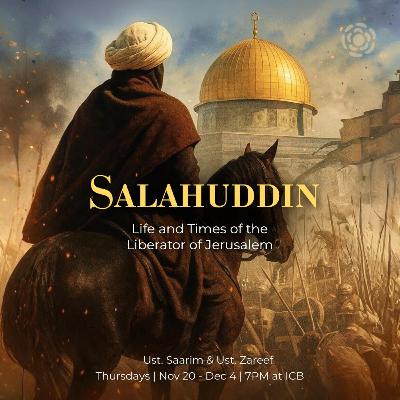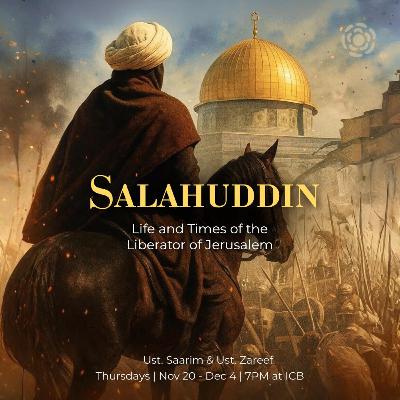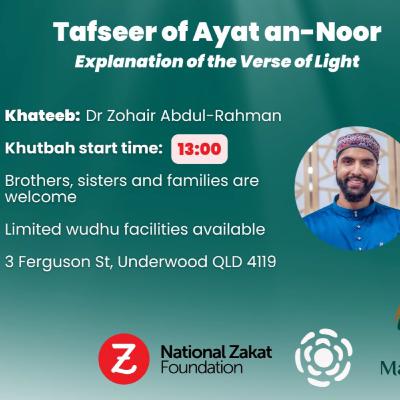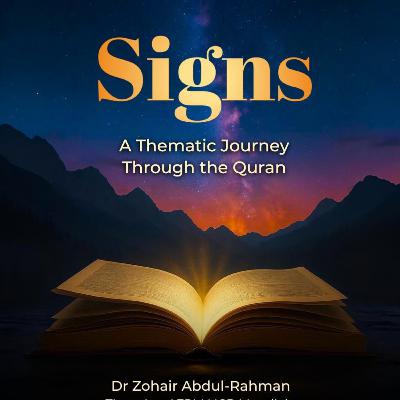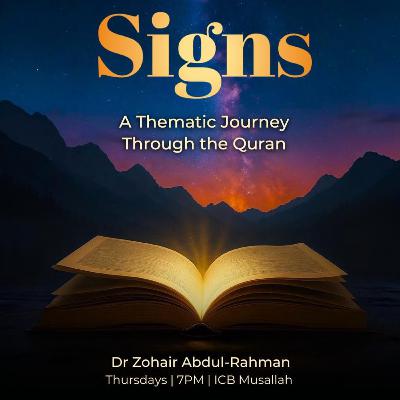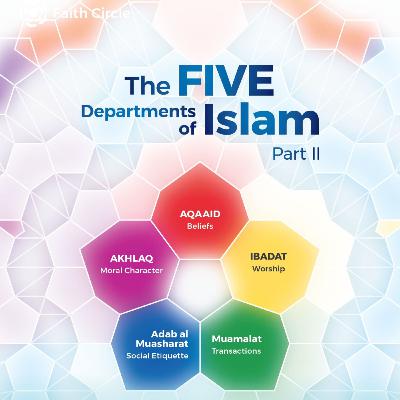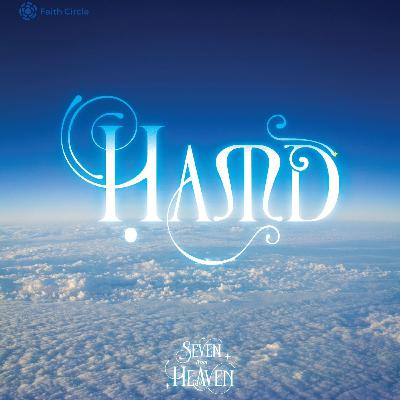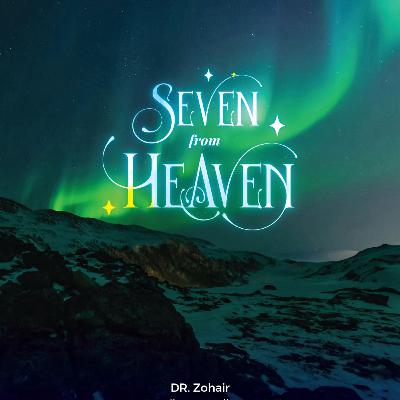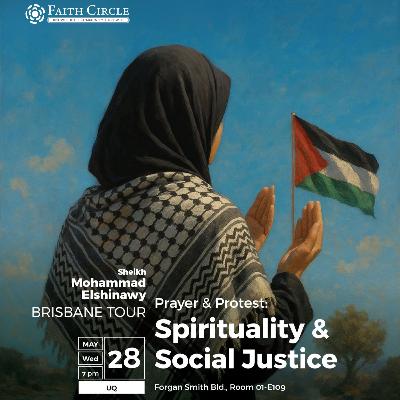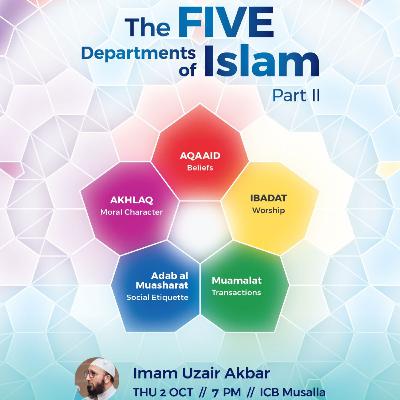Discover Faith Circle Podcast
Faith Circle Podcast

120 Episodes
Reverse
Ustadh Zareef will take us through a session aimed at the heart of what true revival looks like.👑This time, we explore: • Fractured but Rebuilding: the ummah in Salahuddin’s youth - divided, strained, yet quietly preparing for a turning point. • Driven by Purpose: the sincerity and depth of those who shaped him and walked with him.• Cancel Culture? Would we have handed Salahuddin the reins of leadership today, or are we so quick to judge and would dismiss him before his rise?• Practical Action: the steps we can take now to nurture a generation capable of unifying, healing, and uplifting the ummah.This isn’t just a class - it’s a call to reflection and responsibility.
We begin our new mini-series on Salahuddin Al-Ayyubi — the liberator of Jerusalem Why study history? When we trace the rise and fall of nations, the character of leaders, patterns of victory and defeat, and how Allah’s decree unfolds across time — we are reflecting on the āyāt kawniyyah: signs of Allah written in the world and in the events that shaped our Ummah.• The Virtues of the Holy Land: reconnecting our hearts to Palestine, Jerusalem, and Masjid Al-Aqsa• The First Crusade• The Zengid Dynasty: The spark and preparation that paved the way for Salahuddin’s rise
Jumuah khutba 14 Nov 2025
This week will be crossing over 1/3 of the Quran alhamdulillah! We will be going through Surah Anfaal and Surah Tawbah inshallah. These two surahs speak about two of the most important moments in the Seerah - the Battle of Badr and the Conquest of Makkah. And of course, a deeply personal and moving story of tawbah (redemption) for Ka’b Ibn Maalik.We are slowing down our pace just a bit, so it is an opportunity for people to catch up with the Utruja challenge as well! This week, it will be just to the end of Surah Tawbah (so just 1 Juz and a bit).
Surah Ma’idah, An’aam, A’raaf
This week, we’ll finish Sūrah Āli ʿImrān and begin our journey through *Juz’ 4–6*, exploring the signs of guidance, justice, and divine witness.A beautiful ḥadīth is narrated relating to this section of our pre-reading:> ʿAbdullāh ibn Masʿūd (RA) said: The Messenger of Allah ﷺ said to me, “Recite Sūrat an-Nisāʾ.”I asked, “Shall I recite to you what was sent down to you?”He replied, “I love to hear it from someone else.”> So I recited until I reached the verse: ‘How then will it be when We bring from every people a witness, and We bring you as a witness over them?’ [4:41] Then I raised my head and saw tears falling from his eyes._Let us strive to be people whose hearts awaken and whose eyes weep out of love and awe for the words of Allah._ Come early, bring your Qur’an Reading Companion, and journey through Signs! 🌌
“Recite the two brightly illuminated chapters — Surat al-Baqarah and Āl ʿImrān — for on the Day of Resurrection, they will come as two clouds, or two shades, or two flocks of birds pleading for their companions.” (Ṣaḥīḥ Muslim 804)Today we kick off our journey into Signs, starting with Juz 1–3.
New Series! Quran Cover-to-Cover!In this introductory session, we discuss:• What it means to become a Companion of the Qur’an• The Power of the Qur’an on the Human Heart ❤️• Principles of Tadabbur al-Qur’an (deep reflection)• The theory of Maqāṣid Suwar (the objectives of each Sūrah)
Part 3 of 3. Last time, we explored the wisdom of avoiding discord over valid differences of opinion in acts of ʿIbādah. This week, Imam Uzair dives into the rest of the Departments in detail
When the truth is blurred, what path will guide us? Without a firm compass, society unravels into chaos and relativism.“The people of the earth are in greater need of the Messenger’s message than rain from the sky, light from the sun that illuminates the darkness…” (Ibn al-Qayyim, As-Sawāʿiq)🌟 We’ll uncover:• 2 types of Guidance – Irshād (instruction) & Tawfīq (divine aid)• How the modern world collapses without commitment to a singular, ultimate truth• Powerful etiquettes of duʿāʾ• Linguistic treasures of Ṣirāṭ al-Mustaqeem
From the chants of the crowd to the spirit in the streets, Sunday’s march echoed a truth: every effort matters, and true success comes only from Allah. You alone we worship, and You alone we ask for help. This week, we'll explore:• Reflections from the weekend’s protest• The linguistic secrets of this āyah — word order, repetition, singular vs. plural• The psychology of ‘ibādah – how love, humility & motivation shape worship• 7 keys of Tawakkul from Ibn al-Qayyim• How ‘ibādah + isti‘ānah together define true servanthood
“The Day when they shall rise from their graves, nothing will be hidden from God. To whom does the kingdom belong today? To God, the One, the Supreme.” (Qur’an 40:16)In this Faith Circle, we uncover the next ayah of Sūrah al-Fātiḥah — Māliki Yawm al-Dīn.We’ll explore:• Two qirāʾāt: malik vs mālik, and the wisdoms in their combining• Accountability and the moral order• Allah’s all-encompassing justice• True ownership of time
“The Most Merciful shows mercy to those who show mercy. Show mercy to those on earth and the One in heaven will show mercy to you.” (Jāmiʿ al-Tirmidhī, 1924)We’ll dive into:• The Name Allah— encompassing all His Perfect Names and Attributes.• Divine Mercy vs Deism — why Allah’s Lordship is never distant.• Rubūbiyyah & Duʿāʾ — relying on the One who governs all affairs.• Raḥmān & Raḥīm — linguistic roots, key distinctions• An Epistemic Dimension — embodying mercy as a way of knowing Allah more deeply.
Alhamdulillāhi Rabbil ʿĀlamīn isn’t just praise — it’s the foundation of a theocentric worldview.In a godless culture of self-glorification, secular gratitude, and materialistic obsession, this ayah reclaims:The meaning of existenceA moral framework rooted in divine lordship (Rububiyyah)A critique of atheism and materialism that leads to nihilism and existential narcissismThe recognition that to identify a blessing, one must acknowledge a Benefactor
This week, we move to the Basmalah — adorning our recitation by beginning in Allah’s Name, seeking His mercy, and welcoming blessing. We’ll explore:• Is the Basmala part of Surah al-Fātiḥah?• The name Allah — proper noun or derived?• Raḥmān and Raḥīm — what’s the difference, and why does it matter?• How starting in Allah’s
“…It is as though God has chosen the initial word of His Book to be a testament to His tolerance and kindness. But what, then, does one commence with the Basmalah? Every pursuit, every endeavor, every act of obedience.”This Thursday, we’re diving deep into the Isti’adha and Basmalah! Our aim is to move beyond routine and ritual, and truly uncover these powerful gateways to Surah Fatiha.Encapsulated within these brief but profound phrases lies a complete worldview, mirroring the very first command given to the Prophet Muhammad ﷺ by Jibrīl: “Recite in the Name of your Lord.” (Qur’an 96:1)✨What we’ll learn:• The wisdom behind legislating these phrases before recitation• Different forms of Isti’adha found in the Sunnah• Multiple layers of meaning behind Bismillah• Protection from evil and seeking benefit — the two paths every human being faces, captured in the Isti’adha-Basmalah pairing
This series will offer an in-depth tafseer of each verse, as well as a broad look at the themes presented in the greatest piece of revelation ever sent down to mankind.Dr Zohair taught this class 15 years ago, as his first Halaqa series. It is very near and dear to him and has remained his favourite topic. Here are some reasons why:It makes the Salah even more meaningful It contains the entire message of the QuranIt is a letter from Allah to us, containing His Love, Mercy and KindnessIt addresses all ideologies and isms that human beings have ever come up with from the past and in the present. It is a window into an intimate conversation with Allah that takes place everyday
How do we respond to the most recent ceasefire by drawing lessons from the Battle of the Trench and the Treaty of Hudaybiyyah? What does activism look like in Islam, and three guiding principles of sacred activism as we move forward in our efforts for a free Palestine
When injustice becomes constant, resistance must become louder.This week marks the 77th anniversary of the Nakba. As the genocide in Palestine continues with unbearable brutality, many are starting to feel numb. Outrage fades. The news becomes routine. But as the Ummah of the Prophet ﷺ, we cannot allow ourselves to grow used to this.This isn’t just a humanitarian crisis — it’s a spiritual test. How do we hold on to taqwa in an age of injustice? How do we turn heartbreak into action? 💔 Join Shaykh Mohammad Elshinawy for a vital evening that connects our inner state with our outward duty. True social justice begins with the soul - a heart anchored in love of Allah, and a life shaped by purpose.In this session, we’ll explore: • How spirituality sustains consistent and courageous action • Rethinking ‘ibādah: why social justice and political activism are forms of worship. • How we, as individuals and a global community, can respond meaningfully to injustice — with both heart and action
We’re delighted to welcome back our dear Imam Uzair Akbar! 🙌 Over the next two weeks, he’ll be continuing with one of our all time favourite Faith Circle classes: The Five Departments of Islam 📚 ✨ In his last class, Imam Uzair shared an uplifting reminder on filling our hearts with the love of Allah, and letting that guide us towards goodness in every interaction. His heartfelt, personal stories left us truly moved.


